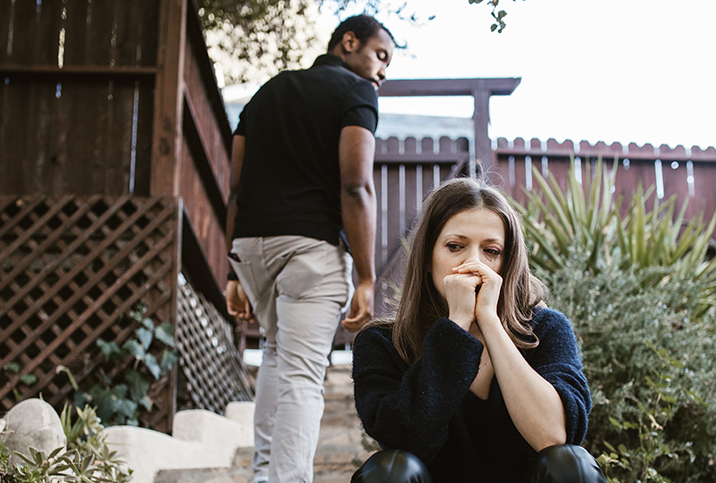How to Apologize in the Right Love Language

Have you ever felt that no matter how much effort you put into an apology for your partner, they still feel you're being insincere? Or perhaps you've been on the receiving end, refusing to believe your partner's insistent apologies?
This often happens because both parties are not speaking the same love language, stalling solutions and leading to longer-term problems with effective conflict resolution.
Identify and understand
Your first task is to identify your partner's love language.
"It is really essential to understand each other's love language in order to relate to each other in the ways that will feel caring and loving to your partner," said Jane Greer, a New York–based licensed marriage and family therapist and the author of "What About Me? Stop Selfishness From Ruining Your Relationship."
"If you don't, even though you may think you are being demonstrative with your love, your partner may actually not experience your actions as loving and instead may feel rejected, hurt and even ignored," she continued.
Consider this example: You purchased an expensive gift for your partner to make up for a mistake you made. However, your partner's love language values acts of service, so your gift may be interpreted as insincere. In this case, helping your partner out with certain errands or chores might have worked better.
"Apologizing to your partner using their love language lets them know that you see them, understand what is important to them, get them, truly care about them and are willing to go outside of your comfort zone to show them how much they mean to you," Greer explained.
"When we give and receive love in ways that are congruent for ourselves and our partners, that provides a feeling of security—we feel appreciated," said Robin Milhausen, a professor and researcher of relationship satisfaction with the Department of Family Relations and Applied Nutrition at the University of Guelph.
Discovering the right love language
Here are some tips for using the appropriate love language in your apologies.
Physical touch
"If a partner's love language is based on physical touch, know that words alone will be insufficient to apologize," said Paul Hokemeyer, Ph.D., a licensed marriage and family therapist and author of "Fragile Power." "It will be important for you to reach out and take their hand when you apologize or give them a hug after you say what you need to say."
Words of affirmation
If your partner's love language is words of affirmation, remember to be generous with your praise and speak from the heart. Verbally emphasize and acknowledge any wrongdoings, while naming and uplifting the positive qualities that drew you to your partner in the first place.
Acts of service
If this is your partner's preferred love language, any apology that incorporates acts of service will go a long way toward getting a sympathetic response to an apology—for example, offering to run errands for them, helping out with daily tasks or chores, or even running a bath or offering a massage after a long day at work.
Quality time
If your partner values spending quality time together, make sure you set aside time to be fully present with them. When apologizing, this means putting away your phone and devices to solely focus on your disagreement or conflict, dedicating time and attention to the conversation.
Receiving gifts
If this is your partner's preferred love language, yes, a gift is appropriate, but it's not so easy. It's very important you choose the right gift, such as something your partner might have been eyeing for some time or something they might need. Selecting the right gift shows how observant you are to recognize what they'd like and how much you care about them.
"When I was dating my husband, I asked him to bring me a surprise from the grocery store," Milhausen confided. "I was hoping for chocolates, strawberries, bubble baths or Champagne. Instead, he brought me the kind of clear plastic film which prevents drafts from coming through old windows.
"At first, I was disappointed, but I recognized that this practical solution was his way of showing love and care for me," she continued. "He had been paying attention and recognized that my bedroom was really cold."
Actions and reaction
"Ultimately, regardless of your partner's love language, actions speak louder than words," Hokemeyer emphasized. "This is why many of the love languages are based on actions. It's also important to remember that conflict resolutions require time and space."
In addition to using the right love language, Greer also advocates using a "hit the hold button" technique.
"[When] one person wants to resolve things immediately no matter how long it may take or what [you're both] doing, [but] the other person doesn't want to deal with it at that time and shuts down, both may feel angry and controlled by the other," she explained.
"Hitting the hold button means agreeing to talk about it at a later date, and the person who is shutting down the argument gives their partner a specific day and time that they will continue to problem-solve. This way, both [love language] styles are respected and the partner who has to wait knows exactly when they will revisit the disagreement so they are not on hold indefinitely."


















